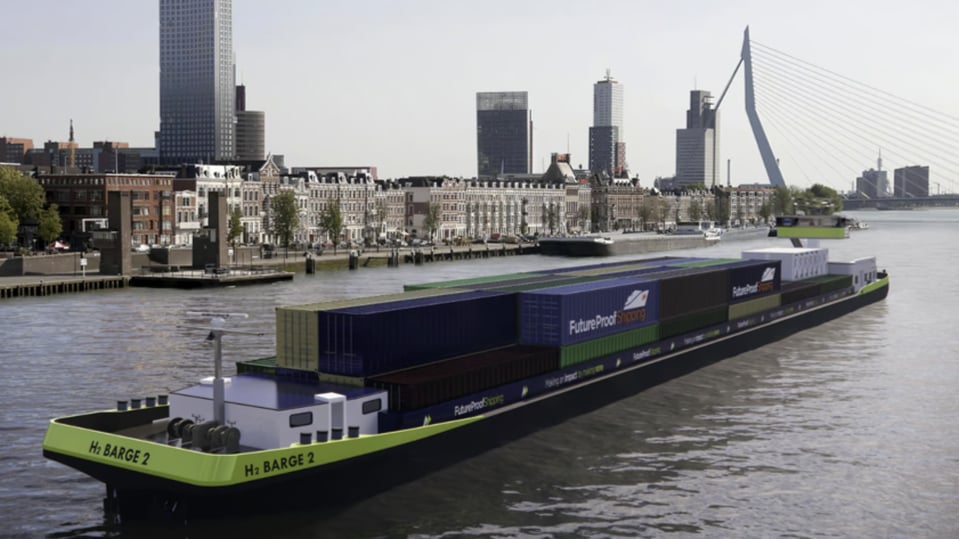
Following its inauguration in Rotterdam, the Netherlands in February, the H2 Barge 2 – powered by Ballard's FCwave™ fuel cell module - is the first inland container ship to be converted from diesel to operate on green hydrogen. The hydrogen-powered barge completed its first trials on the river Rhine in March.
Led by a consortium of partners that make up the Flagships H2020 Project, stakeholder and Dutch shipbuilder Holland Shipyards Group was initially commissioned to convert the diesel-powered ship to a vessel run by fuel cell engines, in a collaborative effort aimed at advancing zero-emission transportation on inland waterways.
Retrofitted with a new zero-emission propulsion system, H2 Barge 2 is powered by six Ballard FCwave™ modules, which provide the vessel with a capacity of 1.2MW. The 110-meter hydrogen-powered ship has a cargo capacity of 200 TEU, and will operate emission-free along a 240km route on the river Rhine between Rotterdam and Duisburg, Germany – eliminating 3,000 tons of CO2 annually.
The vessel, previously known as FPS Waal, was initially a conventionally powered container ship before being retrofitted in 2023, with Holland Shipyards Group removing all combustion engines and diesel fuel tanks at their ISPS-certified shipyard in Werkendam. Now, the H2 Barge 2 incorporates a propulsion system based on electric motors, hydrogen storage tanks, battery packs and fuel cells for emission-free mobility.
This is the first of two demonstrator vessels from the EU-funded Flagships project, with the second – Zulu 06 – scheduled for deployment in Paris, France later in 2024. These vessels are part of a broader initiative to showcase the feasibility and advantages of hydrogen-powered shipping solutions in real-world conditions.
The successful trials of the H2 Barge 2 on the Rhine mark a significant milestone in sustainable water transportation and exemplifies how hydrogen and fuel cells can be harnessed to reduce emissions and promote cleaner waterways.